Shocking: Renowned Rewilding Knepp Estate hosts notorious huntWhy the 'rewildling pioneers' show such 'unwavering loyalty' to a fox hunt...The Knepp Wildland Estate describes itself as "a leading light in the conservation movement", as "trailblazing", and "rewilding pioneers". Run by estate owner Charlie Burrell and his wife Isabella Tree, Knepp's 3,500-acre rewilding project is impressive, with many declining species like Turtle Dove, White Admiral, and Nightingale all now thriving.A sighting in Cornwall this August of the largest flock of White Storkseen in England for hundreds of years involved 'Knepp birds', part of a reintroduction project that is rewriting the story of an iconic bird species... How Knepp, an old estate in West Sussex, became so biodiversity-rich was detailed in 2018's Wilding, written by Isabella Tree. Wilding is almost the 'how to' guide to rewilding and was made into a 2024 film. As the estate has grown in popularity it has also offered numerous experiences to the public: you can book a safari, visit the garden, camp on the land, and even get married there. Yet for all the good it undoubtedly does, Knepp has earned itself a place on our bloodbusiness website - a listings site showing which UK businesses support hunting with dogs and/or shooting birds and mammals and which Protect the Wild developed to help us all make informed choices about our spending. Why is Knepp listed though? Because Charlie Burrell, or Sir Charles Raymond Burrell, 10th Baronet to give him his full title, allows a notorious hunt onto the very same land that he claims is a haven for wildlife... The 'trail hunting' farceIt is perhaps common knowledge that Knepp hosts the Crawley & Horsham Hunt's opening meet each season; what is perhaps less well-known is the deep family ties the Burrells have with the Crawley & Horsham and how the unwavering loyalty Knepp shows the hunt comes despite a number of criminal charges brought against the Crawley & Horsham since the Hunting Act 2004 came into law. Thanks to the work of (especially) West Sussex Hunt Sabs there is countless evidence and footage, published online for all to see, of the hunt chasing and killing wildlife. In 2021 the Crawley and Horsham was dubbed the most violent hunt in the UK by the Hunt Saboteurs Association. So why is Charlie Burrell and Knepp happy to host the hunt? The Crawley and Horsham Hunt at Knepp, November 2023. Photo by West Sussex Hunt SabsFirstly, Knepp wants us to believe that the Crawley & Horsham Hunt are 'trail hunting' - following a pre-laid scent trail rather than seeking out and latching on to the scent of wildlife. The Knepp website says:
Protect the Wild has previously covered how, even if hunts do lay a trail - which is rare - this is STILL a smokescreen to illegally hunt. The trail mixture used by hunts is of animal origin, so they are essentially training hounds to hunt animals. Hunts also lay their trails conveniently next to coverts where animals rest, which gives hunting staff a perfect excuse that they are abiding by the law, and that any wildlife chased or killed is purely accidental. Charlie Burrell and the Knepp Estate staff will be aware that a number of the UK's largest land owners - such as Forestry England and the National Trust- have banned so-called trail hunting on their lands. The ban came after top hunting official Mark Hankinson admitted in leaked Zoom webinars that trail hunting was just a smokescreen, enabling packs to carry out illegal hunting. Richard Gurney - huntsman for the Crawley & Horsham - also played a key role in those webinars. He stated that laying a trail was a Plan B option if saboteurs and monitors were watching; that laying a trail was about giving the "protection that we needed..." And indeed, the Crawley & Horsham Hunt seems to be carrying out this Plan B on the Knepp Estate. West Sussex Sabs told Protect the Wild:
Loyalty over generationsKnepp's same 'trail hunting' page even seeks to explain (repeating a usual trope offered by wildlife killers) that hunting has actually benefitted wildlife:
The truth is of course that much like shooting landowners left copses unfelled because they provided cover for birds, hunting landowners left hedges and woodland because they knew it would be used by foxes. But that first line goes further than any waffle about 'trail hunting' to explain why the hunt is still allowed access to an estate that prides itself on its rich wildlife - and that includes foxes. That loyalty is based on generations of fox hunting. "Charlie Burrell’s grandparents, the late Sir Walter and Lady Burrell, were Masters of the Crawley and Horsham Hunt". But it's not just historical ties that allow the hunt to meet at Knepp of course. This is still a family of hunters. Mark Burrell, Director of the Crawley & Horsham hunt, is Charlie Burrell's uncle. Mark's son Anthony - Charlie's cousin - was also a Director of the hunt until he died in 2022. Anthony's wife, Louise Burrell, is listed as a joint master of the hunt for the 2024/25 'season'. Terrorising wildlife on Knepp landAs we have said, the Burrells' loyalty to the Crawley and Horsham is unwavering - so much so that it appears willing to put the safety of its own animals on the line. West Sussex Hunt Sabs wrote of the hunt's 18 November 2023 opening meet at Knepp:
These cows are vital for Knepp, having been introduced to the land as "perfect rewilding candidates", churning up the land to allow pools and a rich flora to develop. At the same meet, the hounds were seen rioting on deer. Footage from West Sussex Hunt Saboteurs, released two years ago, shows Knepp ponies and deer being chased by the hunt. And, despite the estate's claims that it doesn't allow illegal hunting to take place, the video also clearly shows a fox being chased, with hounds in close pursuit... CriminalsIt's not just on Knepp estate that the hunt has been recorded breaking the law. There have been a number of criminal charges brought against the Crawley and Horsham Hunt since the passing of the Hunting Act 2004. There's countless evidence and footage, published online for all to see, of the hunt chasing and killing wildlife, blocking badger setts, and even throwing a fox to hounds. Anti-hunting website The Citro has outlined the court cases the hunt has faced:
And then in 2021, huntsman William Bishop faced trial for illegal hunting, but he walked free from conviction after the CPS made significant errors, failing to provide the defence with key evidence. The Citro also outlined other significant incidents:
The Crawley and Horsham Hunt at Knepp, November 2023. Photo by West Sussex Hunt SabsNot the only 'wholesome' estateSadly, Knepp isn't the only famous English estate which paints a wholesome picture of itself while closely allying with fox hunts. Protect the Wild has been campaigning for the Newt in Somerset to disassociate itself from hunting too. The Newt - owned by the Emily Estate - prides itself on being the world's best boutique hotel. It has extensive gardens, and states that “everything is rooted in a deep respect for the land, the locality and all creatures living on it”. Yet it has numerous links to the notorious Blackmore and Sparkford Vale Hunt, which has been known to meet on the hotel grounds, and is allowed to meet and hunt on other Emily Estate-owned farms. Protect the Wild argues that if both the Knepp Estate and The Newt continue to allow hunts to use their land they risk suffering from reputational damage as these links become more and more widely-known. More importantly, perhaps, the businesses risk prosecution under Section 3 of the Hunting Act as complicit landowners. These businesses are surely aware of both risks and as such influntial bodies ought to set an example to other landowners and sever all ties with hunters with immediate effect. It's time for the Burrell family - with its long history of chasing foxes - to turn its back on fox hunting once and for all. Until then, Knepp will remain alongside the more than 400 other businesses already featured on the bloodbusiness website.
Images and video by West Sussex Hunt Sabs Pick up our 2025 Calendar today and help support our work protecting British wildlife. |
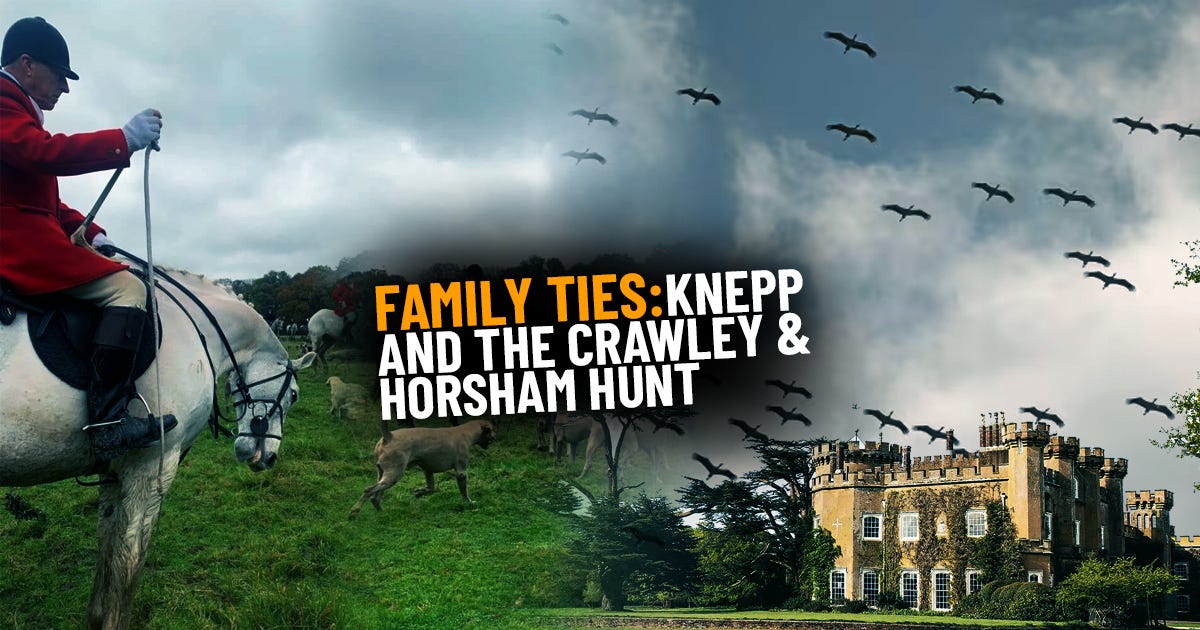
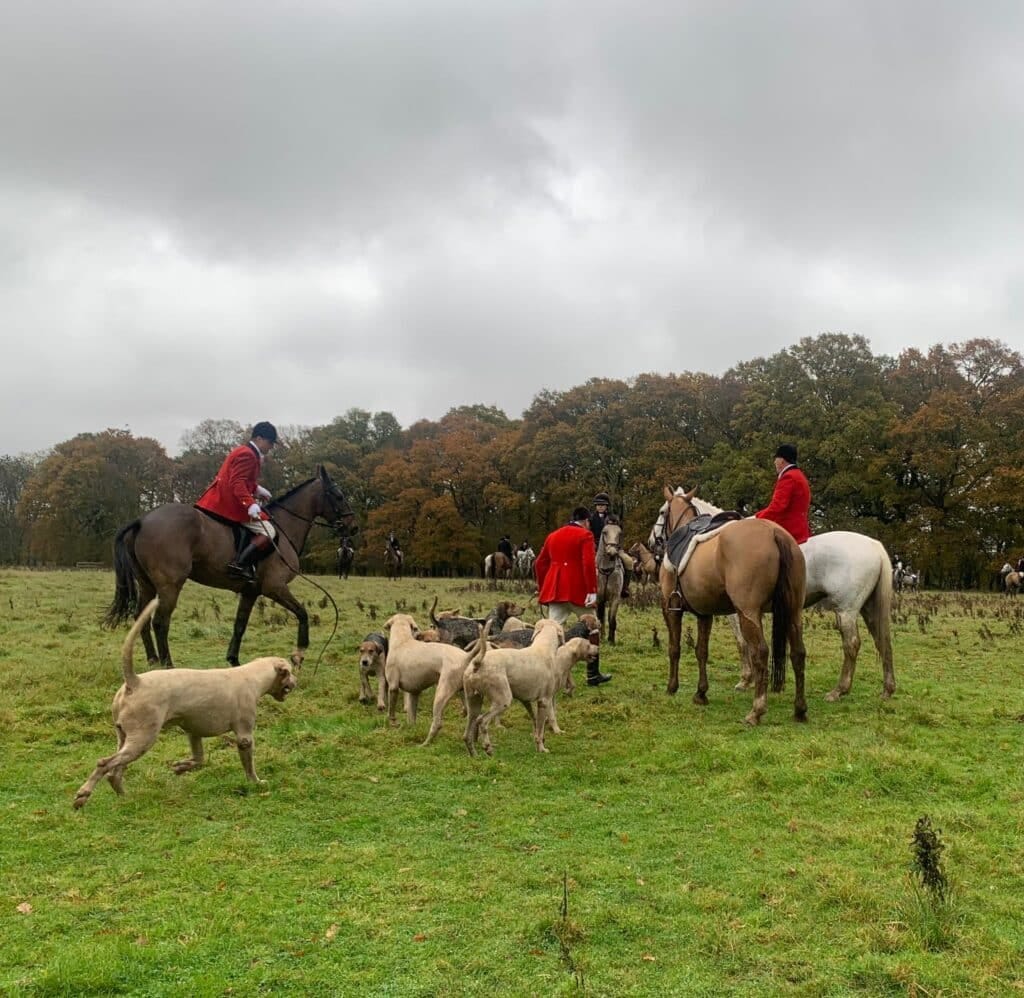
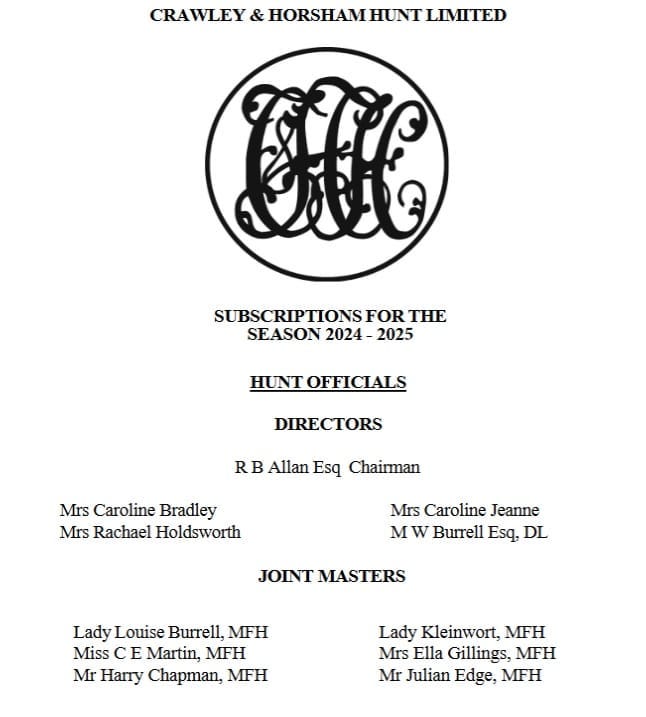
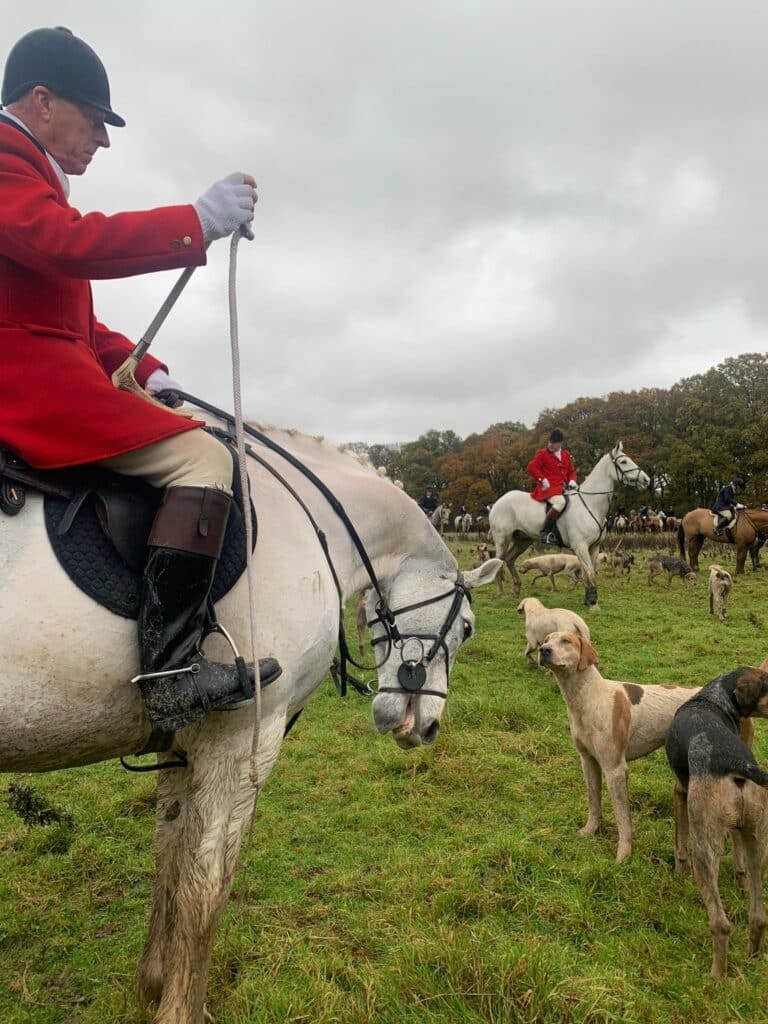
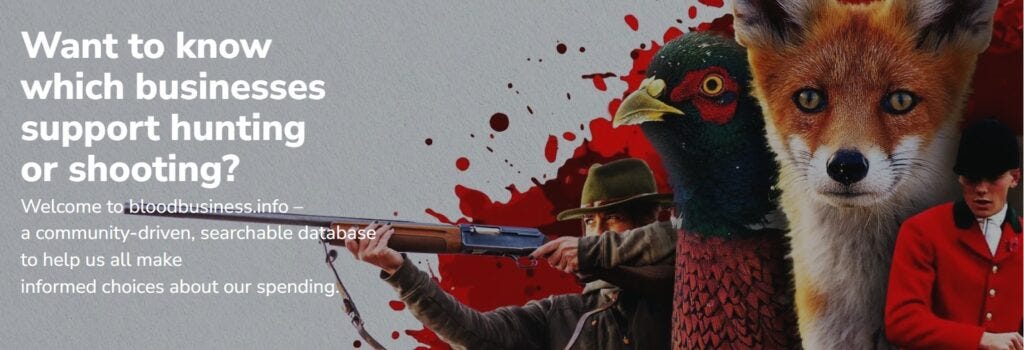
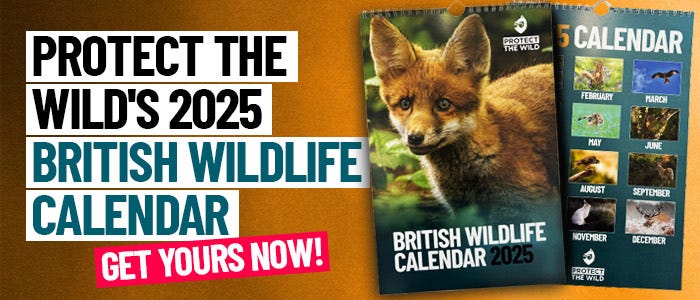
No comments:
Post a Comment